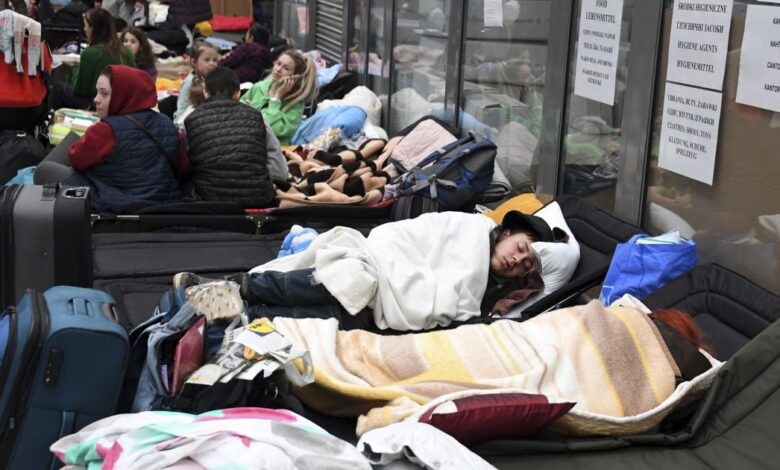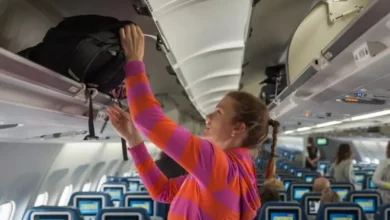Poland to close collective accommodation centers for most refugees from Ukraine

The situation of Ukrainians who found temporary shelter in Poland after the full-scale invasion of Russia is gradually becoming more complicated. If the first years of the war were accompanied by active support, an extensive infrastructure of humanitarian aid and access to free housing, then in the middle of 2025, Warsaw’s state policy towards Ukrainian refugees began to change. It is no longer about emergency evacuation or crisis response. Poland is entering a new phase: a limited and differentiated approach, in which not all Ukrainians can count on free accommodation in shelters.
Who will stay in the centers and who will have to leave
The decision announced by the Polish government to end the program of free accommodation in collective accommodation centers from November 1, with the exception of certain categories, marks the beginning of a new stage — a transition to a more rationalized model of support, with advantages for vulnerable groups and a requirement for independent adaptation for the rest.
According to information released by the Polish government and confirmed According to Polish Radio, as of November 1, 2025, collective accommodation centers in Poland will change the principles of reception. Free accommodation will remain only for three categories of people: the elderly (pensioners), pregnant women and people with disabilities. All other refugees from Ukraine who do not belong to these designated “protected groups” will be able to stay in such shelters free of charge only for the first 120 days after arriving in Poland.
After the end of this term, Ukrainians will be forced to either leave the center or start paying for accommodation on their own. That is, a free place in the shelter will no longer be a guarantee for everyone, as it was in the first two years after the start of the war.
As the authorities explain it
The Polish government emphasizes that this decision is the result of the reorientation of state social programs. Instead of general coverage of living expenses — financial targeting and support for those in a difficult situation. As government spokesman Adam Shlapka explained, Poland does not refuse aid to Ukrainians, but “modifies its form in accordance with changes in the situation.”
Joanna Bahanek, a representative of the Masovian Voivodeship, clarified that the co-financing mechanism is already in use: many refugees who live in shelters for more than the allowed 120 days now pay extra for accommodation and food. At the same time, it is not only about the desire to reduce the budget burden. The change in approach is also a signal for the adaptation of refugees who are not among the most vulnerable groups.
The “Together to Independence” program is an alternative for those who are not in the center
For about 6,000 Ukrainians who do not fall into the preferential categories, the Polish government has provided for participation in a new program – “Razem do zasznejności” (“Together to independence”). It is financed by the European Union. Its purpose is not to provide housing, but to help people get out of dependence on humanitarian aid. The program includes subsidies for housing rent, as well as funding for Polish language courses, which should facilitate further integration into Polish society.
This means that state support is no longer focused on temporary support, but is focused on creating conditions for independent living and participation in the economy of the host country.
The decision to change the forms of assistance takes place against the background of recognition of the real contribution of Ukrainian citizens to the development of the Polish economy. A joint study by the consulting company Deloitte and the Office of the United Nations High Commissioner for Refugees emphasized that Ukrainians who left for Poland after the start of the full-scale war made a significant contribution to the consumer market, the labor market, and the tax base.
However, government support mechanisms are no longer aimed at maintaining massive humanitarian structures. Poland records a decrease in the number of applications for compensation of costs for the accommodation of Ukrainians. This means that the emergency response phase is gradually ending.
For a significant part of Ukrainians who have not yet been able to find a permanent job, have not learned the language or integrated into new communities, the new conditions may become critical. If previously people could live in a shelter for free for years, now they will have to either find housing on their own or meet the criteria of the new programs. The situation will be especially difficult for those who do not have a stable income, housing agreement or family ties in Poland.
Given the limited scale of the “Together to Independence” program — 6,000 people — it can be assumed that not all applicants will receive support. Issues of long-term housing, employment, access to health care and education, which are particularly critical for families with children, remain unresolved.





